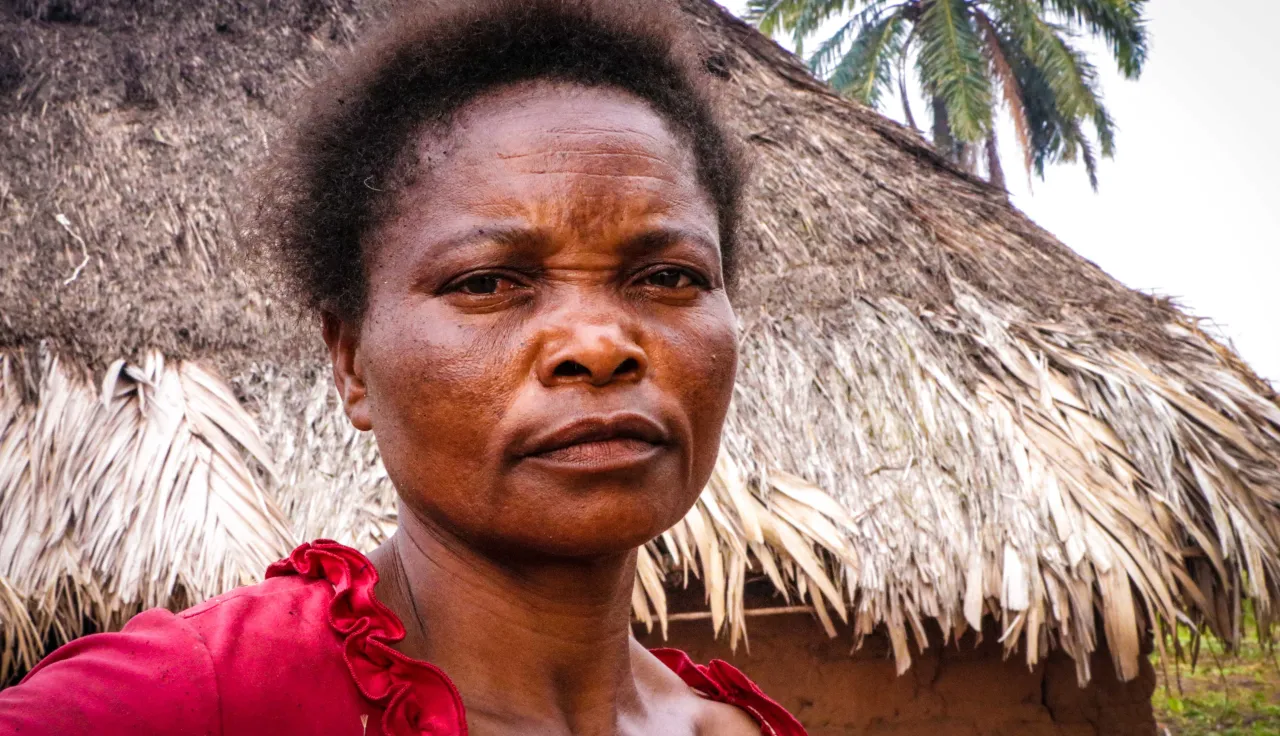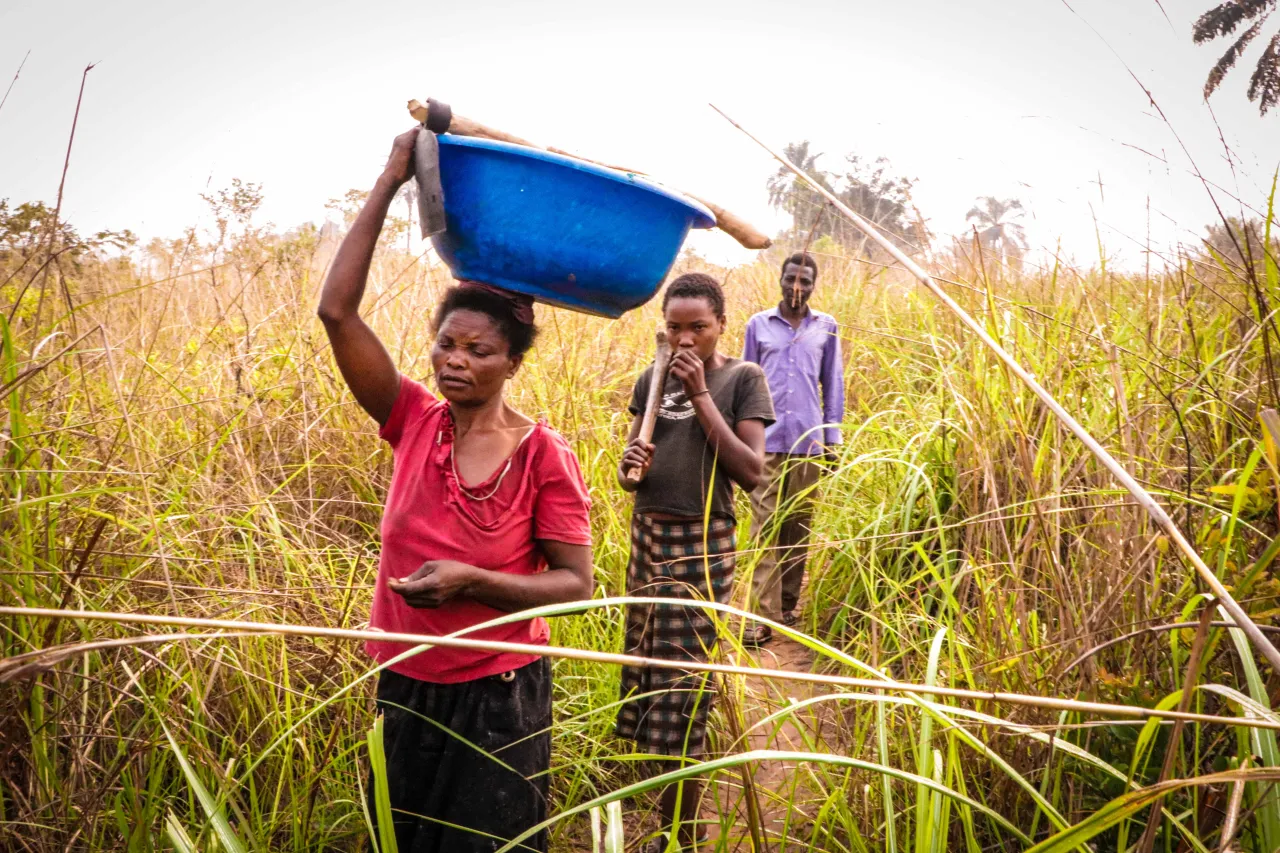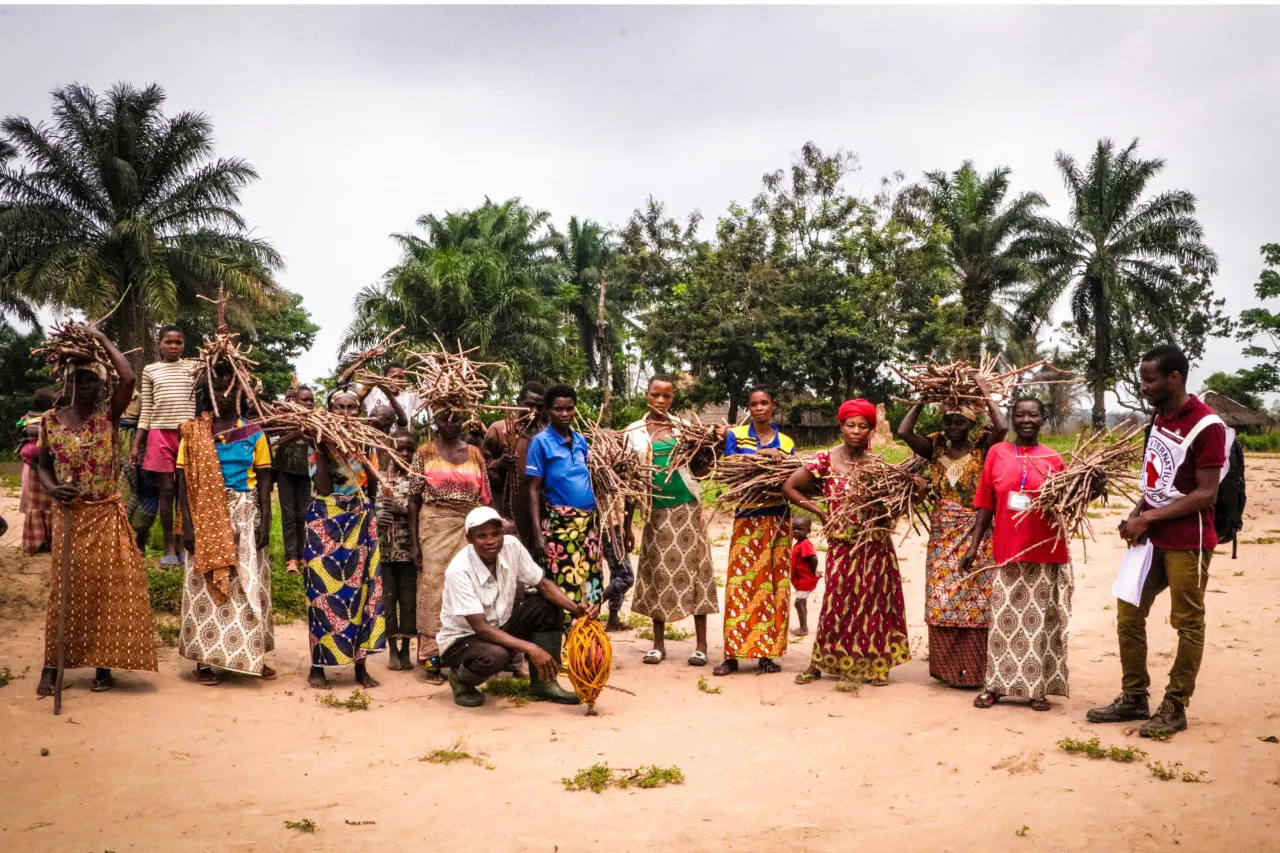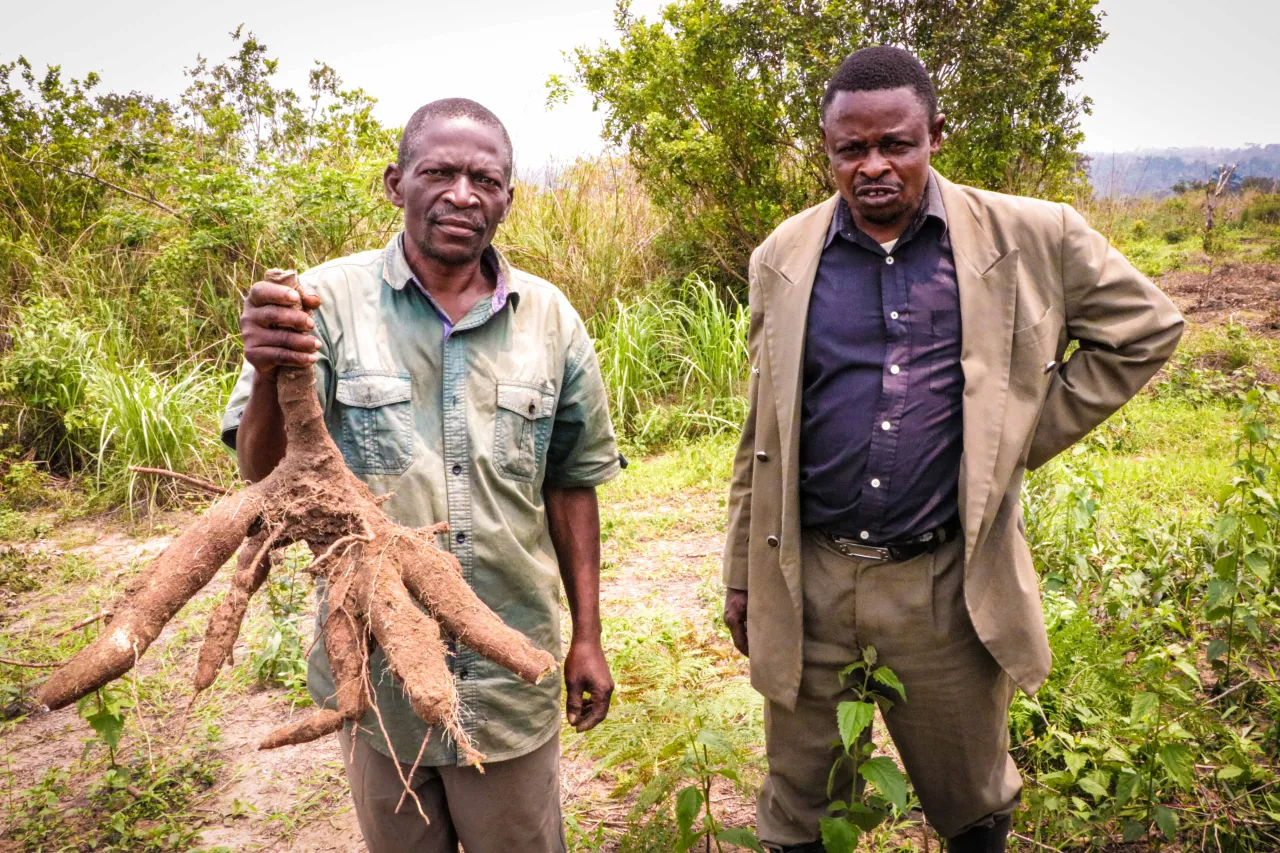Democratic Republic of the Congo: The only thing left in Kasai was the land

Three years may have passed since violence ravaged the central region of Kasai in the Democratic Republic of the Congo, but thousands of families are still struggling to return to normal. Farming is the main livelihood here, but a lack of tools and seed have made it hard for people to live off the land.
Marie was unable to feed her family properly for a whole year. During the violence, she sought refuge in the bush more than 30 kilometres away, only to return in 2018 and find that her house and her belongings had been ransacked. Working the land was no longer an option. "We went to bed hungry some days," she says. Her nine children have all suffered from malnutrition – sometimes severe.
Marie lives in the village of Tshibombi in the province of Kasai-Central. The last outbreak of violence has left visible scars everywhere you look and is seared into the villagers' memories. The picture is bleak. New houses are few and far between; burnt or abandoned huts are the main feature here. Some residents have still not returned, and the economy is stagnant.

Marie, her husband and daughter walk to the field they are farming together.
The villagers were forced to flee just when their crops were ready to be harvested; the harvest was either taken or destroyed. The forest has also thwarted progress by reclaiming abandoned farmland. Another challenge, and not an insignificant one, is the difficulty in getting hold of agricultural supplies to bring the land back into production.
In this region, farming is the main source of food and income. The soil is rich and fertile, and well suited to growing vegetables, cassava and corn. "Even with everything gone, we still have the land," says Marie, hopefully, "but it has meant starting from scratch."

In the village of Tshibombi in Kasai-Central province, 6,500 pre-registered families received cassava cuttings to be propagated on-site.
Better farming means a better harvest
In August 2019, the International Committee of the Red Cross (ICRC) began providing aid in several villages across the province, including Tschibombi where Marie lives. It has provided almost 6,500 families with food, cash, household items, seed, cassava cuttings and agricultural tools, which were distributed in instalments over the course of just over a year.
The villagers responded by getting organized, with some working the land they own and others working community spaces. "We started by tackling the trees, burning any that had taken over the fields. Then we planted our crops and managed the weeds," explains Marie.

The first cassava harvest has proved successful.
Good farming techniques were not widely understood; however, the ICRC trained local people to improve awareness among the farming community. "We have taught families how to look after the crops, sometimes going with them to the fields," explained Bonaventure Tshibombi, the village chief. "We've already harvested lots of the new variety of cassava."
Marie was one of the villagers who took part in the training. "We learnt to leave a gap when we sow seeds and also to put three corn seeds into one hole," she explains. "One seed may fail, but the others will germinate."
Marie walks the two kilometres to get to the land she is farming, her husband and eldest daughter at her side. For her, the distance is not important – the results are. "Now, we can eat every day, whatever the season. And we can even earn money by selling some of the harvests."
The UN estimates that 1.4 million people were forced to flee their homes in the Kasai region's five provinces between 2016 and 2017 because of the armed conflict between national security forces and local militia, which was compounded by ethnic violence. The humanitarian consequences of this violence are still felt by people today.



